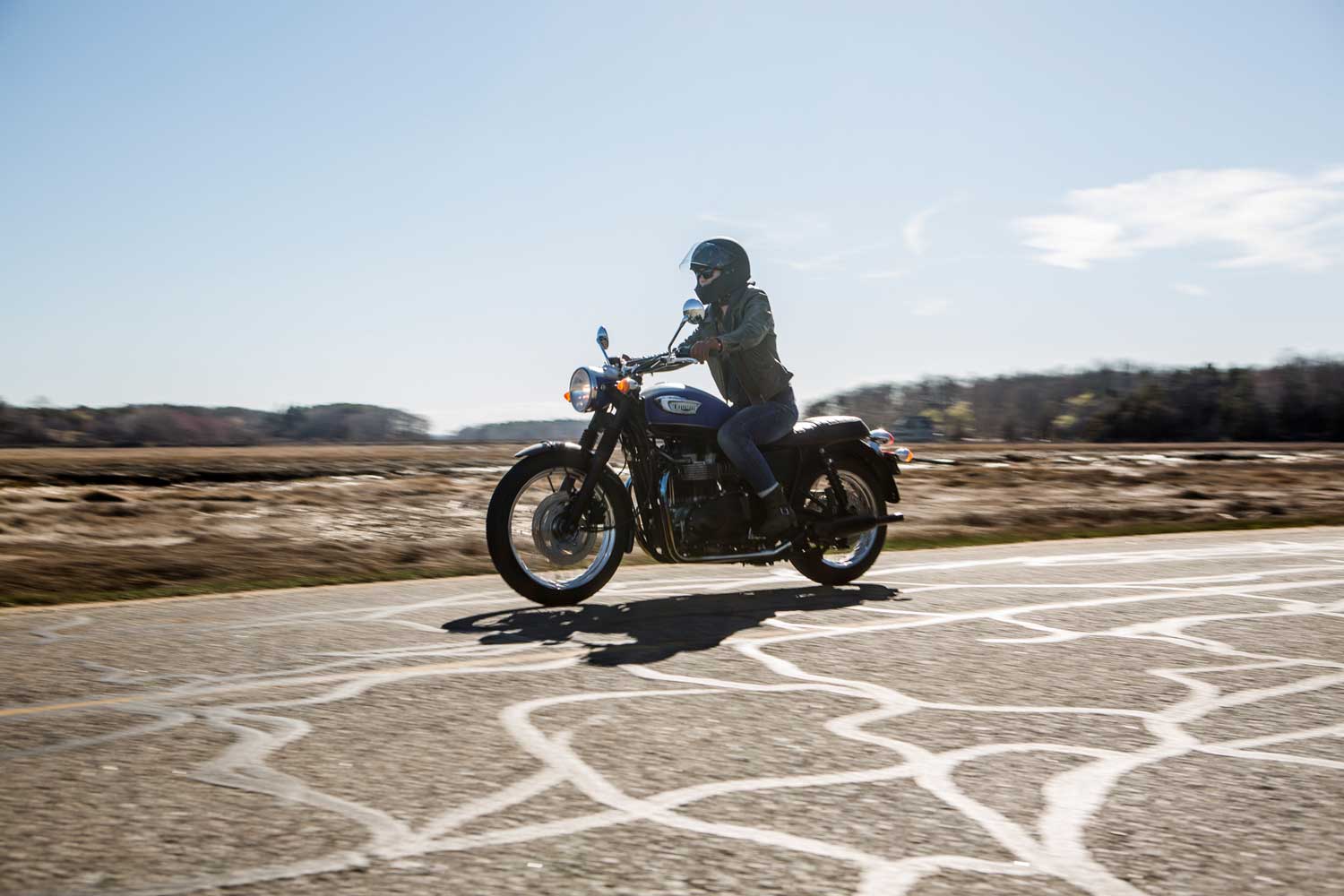Disassembling Disaster

Disassembling Disaster
By Lily Brooks-Dalton
Banner image by Patrick Daly
About halfway through a five-week, 5500-mile motorcycle trip, I broke a toe. At least, I’m pretty sure I broke it. I didn’t bother going to a doctor to find out, but it hurt like hell and I was limping for weeks. I was at a gas station in Colorado when it happened, pulling my motorcycle around from the gas pump to the air machine so I could refill my tires. The ground was loose gravel, riddled with potholes, and about halfway to the back of the lot a teenage boy ran out the door of the gas station—directly in front of me. I slammed on my brakes, but between the gravel, the potholes, and the teenager, I ended up losing control of the motorcycle. When it went down, my foot got caught between the peg and the road, crushing it with about 500 pounds of hot metal. My partner rushed over and helped me pull the bike up. The teenager apologized profusely and then sped off in his car. I limped over to the air machine in a tearful daze to inspect the damage. Not good.
Exploring means encountering shit like this. There was that other time that I threw my back out in South Dakota. Or the time I dumped a motorcycle all alone in middle-of-nowhere Vermont. Or the time I lost my wallet in southern Oregon. Or the time I rode through a hail storm. Or that other time I rode through a hail storm. These examples are mine, so some of their severity is rooted in my mode of transport—a motorcycle—but that doesn’t really matter. Whether you’re driving, riding, or walking, there is always shit. Disaster is imminent.

Photo by Michael Belt
But here’s the other thing: a disaster isn’t really a disaster unless you don’t recover from it. It’s so easy to lose one’s resolve over challenges met on the road. Let’s face it, it’s hard out there at the best of times. And when things start going wrong, it’s even harder. When I took off my boot later that day and saw that my foot had swollen to twice its size and my toes were the color of rotten blueberries, I struggled with the idea of going forward. There was another 2000 miles or so to go, and for a few minutes it was inconceivable that I would make it. That I wanted to make it.

Photo by Michael Belt
Travel is a beautiful thing, but it’s moments like these when I really feel that I’m exploring—when it comes time to make a choice about how I want to handle myself in an unfamiliar place, with an unfamiliar problem. How to set up camp hopping around on one foot; how to take care of my body and still keeping going; how to ask for help and accept it. That’s when I get to decide who I want to be, then meet that person in the flesh and become her. That woman wouldn’t let a broken toe end one of the most incredible adventures she’s ever been on—and neither will I. Let me be clear, I’m a huge advocate for self care, for knowing your limits, for taking care of yourself in the way that only you know is right. But I’m also an advocate for getting back on the bike, for finishing what’s started, for not letting a problem spiral into a disaster.
It’s not as though there aren’t plenty of challenges in my own backyard. There are—tons. I don’t need to explore to encounter difficulty. But there’s something about being on the road and navigating the obstacles, about finding the humor and grace to face the hard stuff when all five pairs of socks I brought are dirty and I’m out of deodorant and I have mosquito bites in all the wrong places. There aren’t the same old comforts to fall back on, the usual distractions. It’s just a matter of quiet resolve. Of going forward. Of traversing the unknown and discovering who I am.
At the end of that particular day, it turned out all I needed was a bag of ice, a creamsicle, and to make room for my suddenly enormous foot by removing the liner in my boot. Not such a disaster after all. Not even close.

Photo by Michael Belt
Lily Brooks-Dalton is the author of the memoir, Motorcycles I’ve Loved, and her first novel is forthcoming in 2016. When she’s not exploring, she’s reading, writing, and teaching in Portland, Oregon. You can find her on Instagram, Facebook, or her website.
Be the first to comment